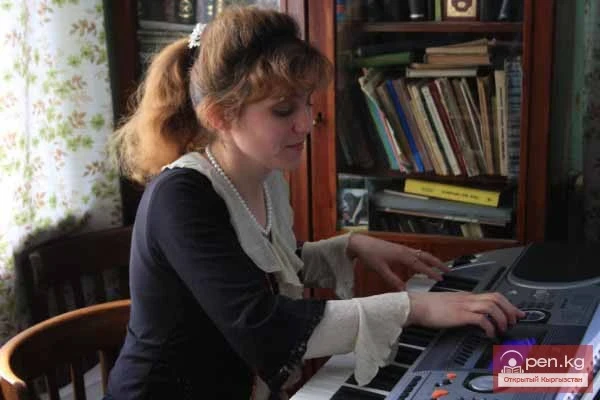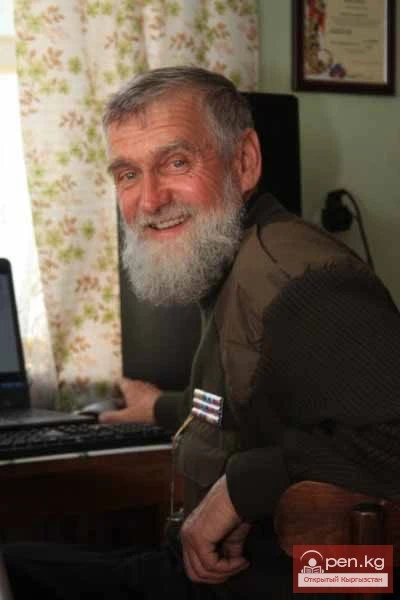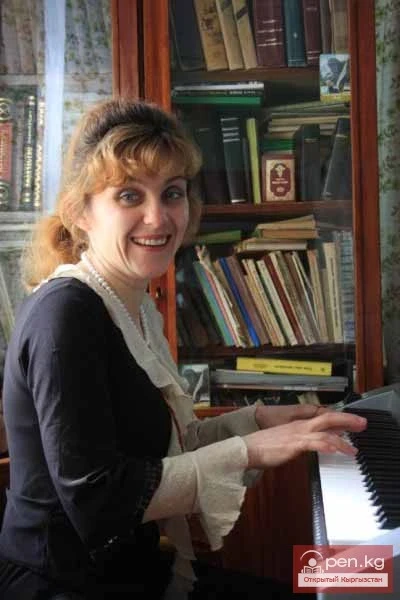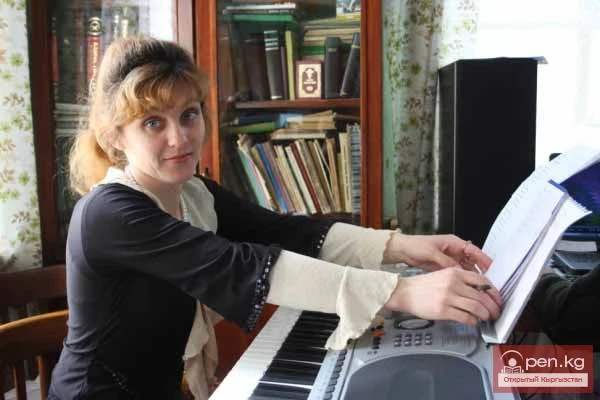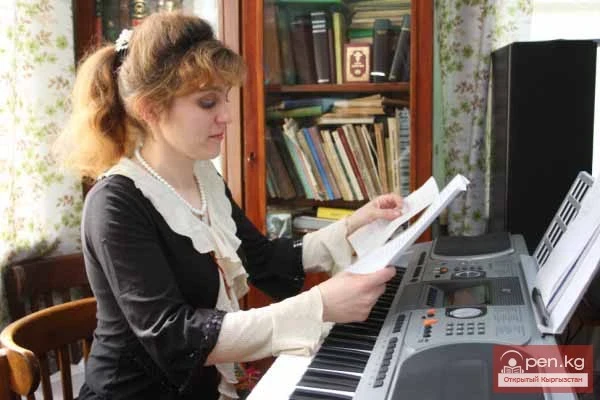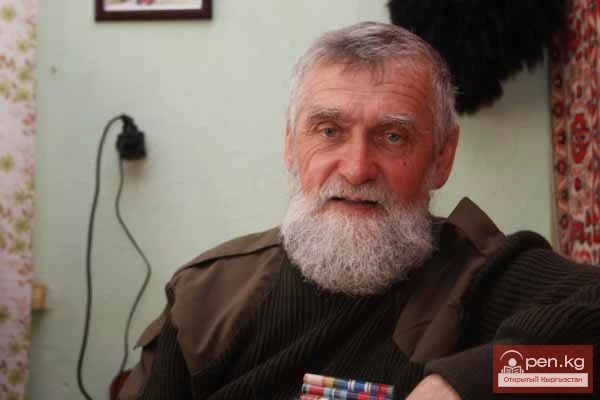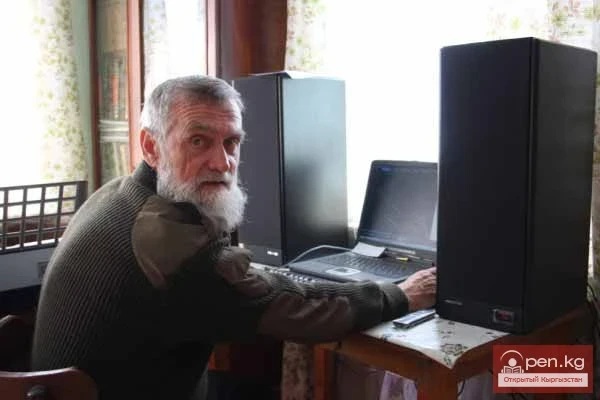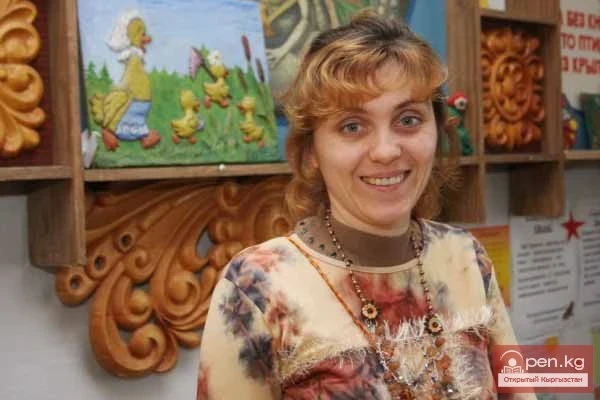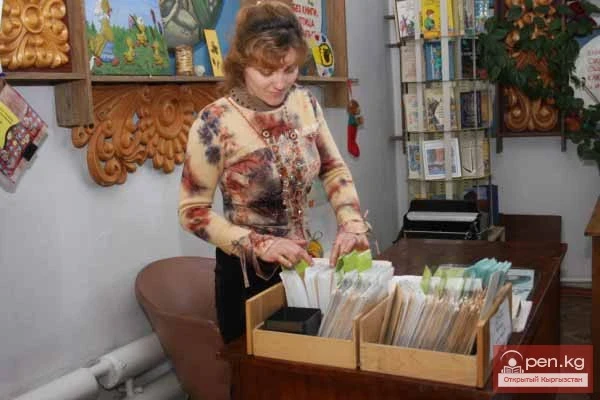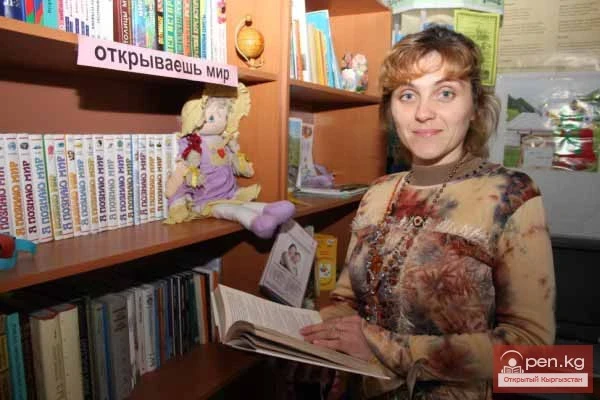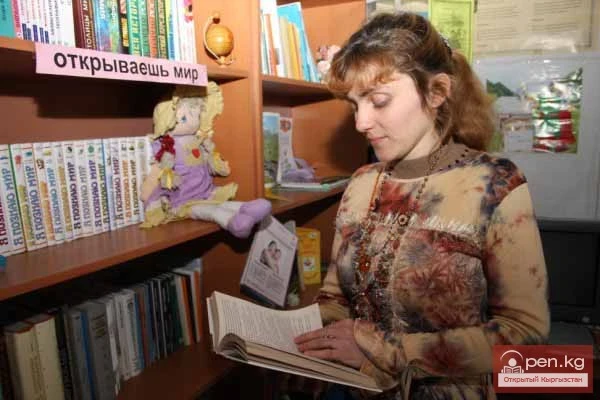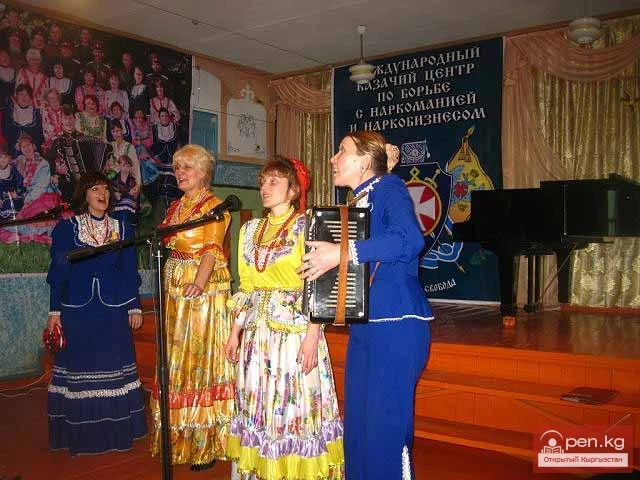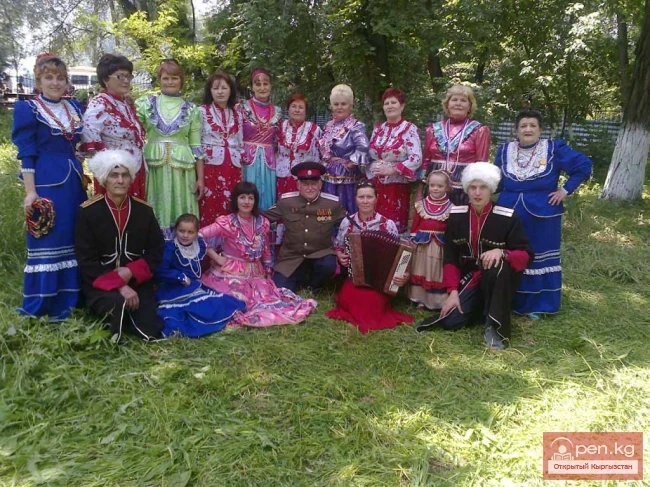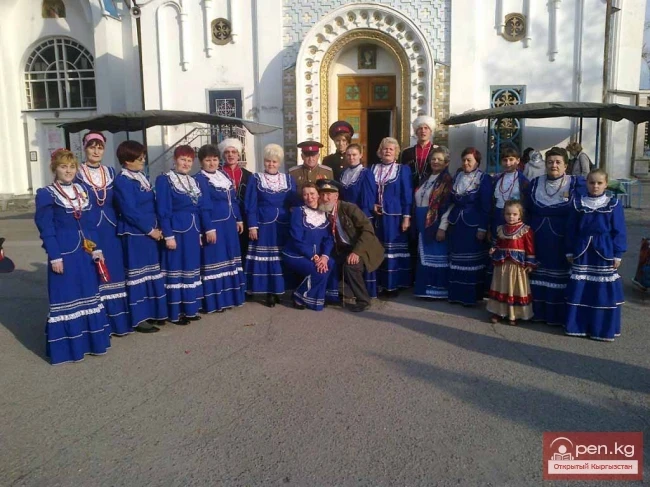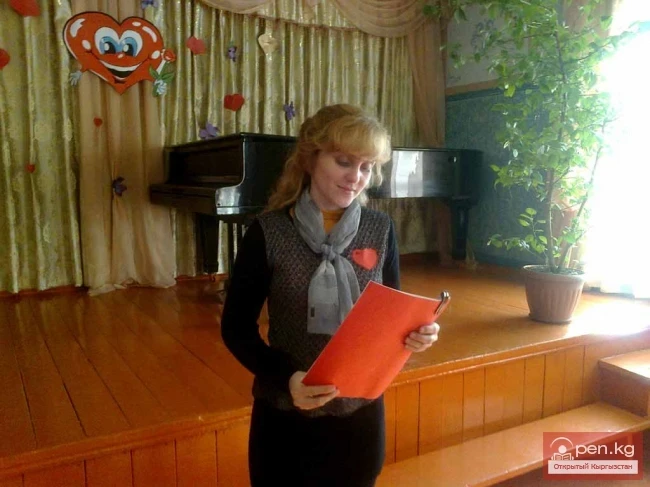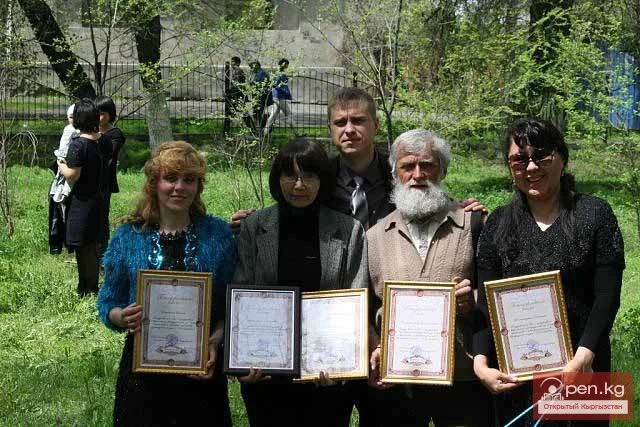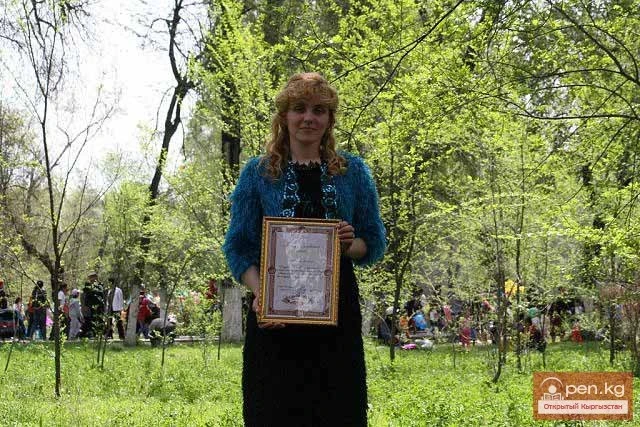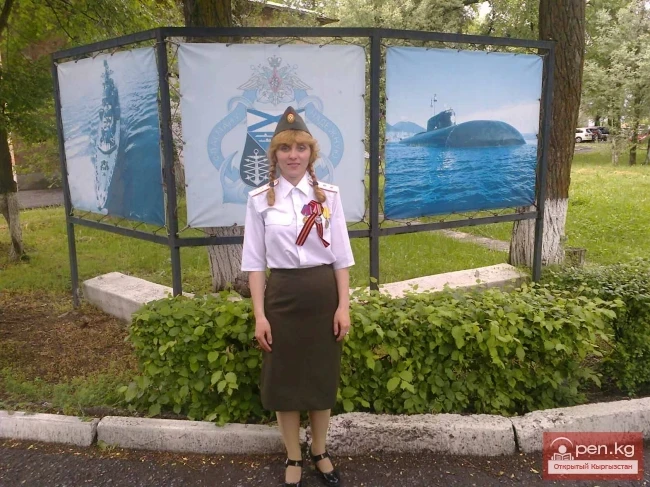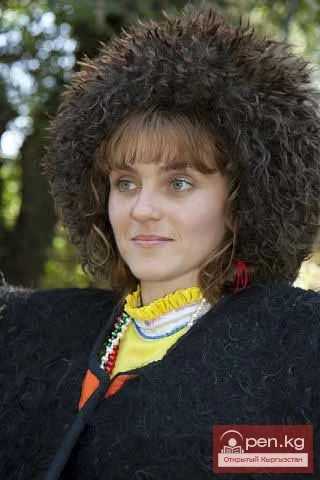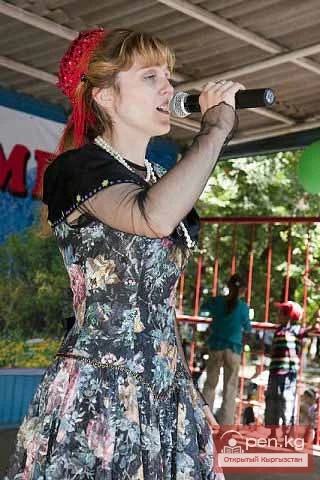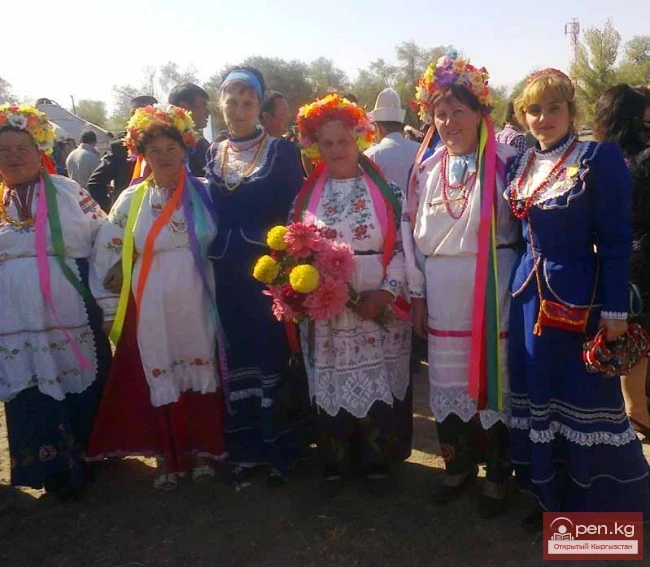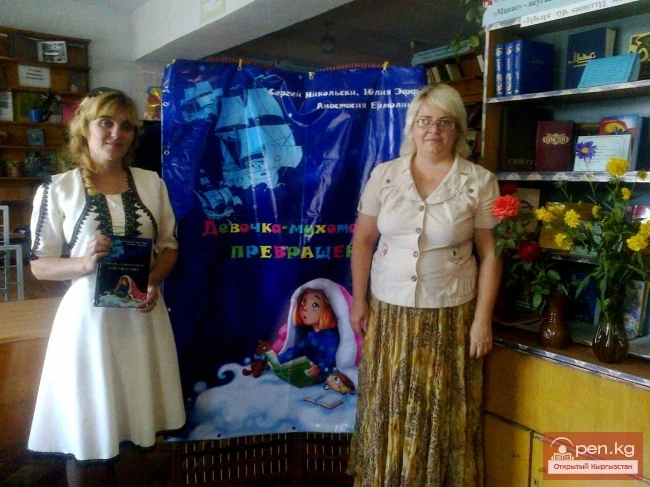Kyrgyz Songs in Russian!
We found Ksenia, who lives in Belo vodskoye, and visited her at the Central Rural Library named after Chinghiz Aitmatov, to find out who the initiator of this unique project is and what exactly the Kyrgyz songs are about in Russian. It is not for nothing that they say librarians are creative people; Ksenia is also a talented individual. She always carries song lyrics in her bag, which she refines and hums. You could say she lives for this.
- Ksenia, tell us, whose idea is this?
- The author of this unique project is Mikhail Sergeyevich Demchenko. He has long nurtured the idea of translating Kyrgyz songs into Russian. He is a member of the Writers' Union of Russia and the head of the Semirechye Cossack Union. He has dedicated his entire life to cultural and mass work, and now the choir sings these "new-old" songs. He has always been amazed at how melodic and beautiful Kyrgyz songs are, and he has always wanted to know what they sing about, so he found like-minded people who agreed to do a line-by-line translation of the texts. The result surprised everyone. "What is the youth singing about now? Nothing, really. But Kyrgyz songs are history, and the lyrics are incredibly artistic and full of epithets," he would repeat. The flowering of musical culture in many countries occurred in the 1980s, which is why we turned to this repertoire. And it was not easy to fit Russian lyrics into folk melodies, as one must consider syllables, stresses, and the manner of performance.
- How did you get involved in this project?
- We met Mikhail Demchenko purely by chance. I participated in a poetry contest and was heavily criticized, which made me lose the desire to create. I just wanted to know the opinion of someone who had already published a book. I was told there was no literary club in the village, but in the children's library, I should find Tatyana Demchenko, who could help me. I tracked her down, and she advised me to contact the Cossack Mikhail Demchenko. It turned out we lived next door. I went to him and showed him my poems. A few days later, he invited me over and told me he was working on compiling an electronic poetry collection called "Cossack Station," which was later published in Moscow in 2009.
In this publication, among ten authors, were my poems. He also shared with me that he wanted to bring the project "Kyrgyz songs in Russian" to life. He asked me, "Do I sing?" So I sat down at the instrument and performed a song, and since then we have been working together. Since I was 12, I enjoyed performing the composition "Elaman," and I was very curious to know what it was about, as I was only told that this song is about a child. That's how our team was formed, to which another guy joined. But it was difficult to find common ground with him, and he left our creative team, so we were left without recording and instruments. Fortunately, we had some savings and bought simple keyboards. Since then, we began to work. In 2012, a well-known performer in the republic, winner of numerous festivals Stas Pashkovsky, was invited to the project; he is now the sound engineer and vocalist of the project. In 2013, Marianna Tentimisheva, a vocalist who works as a teacher at the PSSh in Belo vodskoye, was invited.
- We heard that you even released a disc "Kyrgyz songs in Russian..."
- We recorded a disc in 2014, but it is not for sale. We only give away the record. The disc contains twenty songs. For us, line-by-line, or semantic translations are made by librarians and school teachers, and then we engage in meticulous yet interesting work to make these translations poetic. Before recording a song, we review its translation made by several people to preserve the meaning of the original more accurately.
- How do people react when they hear well-known songs in Russian?
- You know, at first, we doubted whether we were doing the right thing by translating songs into Russian; we were really afraid that listeners would be dissatisfied. But it turned out quite the opposite. Now they even suggest to us which composition is better to cover. And after we were shown on TV, people started stopping us on the street to thank us. Kyrgyz listeners are very pleased and note that the translation was done successfully.
- What does performing these songs and participating in this project give you personally?
- I write my own songs and gladly perform them when asked. And in the media project, there was an opportunity to perform translated songs, which also delights the soul. Since childhood, we have heard Kyrgyz compositions and have always admired their lyricism and beautiful voices. They all resonate with the soul. First and foremost, we wanted to know what the performers were singing about. And we are very pleased that now many others can understand what these songs are about. And this is not only for Russian-speaking people in our country; it includes everyone living abroad. It is very important for us to give new life to Kyrgyz songs. We do not have a professional studio; we record at the homes of project participants.
- You are an incredibly creative person...
- I would like to say a huge thank you to my mother, who started recording my poems when I was four years old. I have a musical education in two instruments: bayan and piano. Currently, for the second year, I have been leading the People's Cossack Choir "Stanitsa," where I play the tambourine. By nature, I am a lyricist, and I am more interested in sad compositions, which I enjoyed performing, and then I started writing songs myself. My education is in "Library Science." I am very glad that I have the opportunity to record not only Kyrgyz songs but also my own. In 2014, I published my own poetry collection "The Left Trace." And I am also glad that we, thanks to the translations of Kyrgyz songs into Russian, can leave a mark in the history of our country. This especially pleases the soul.
- What exactly are you working on now?
- We started our project with translations of compositions from the 60s and 80s. We switched to contemporary repertoire. I would very much like the authors themselves to reach out to us, as it would be a wonderful opportunity for them to be understood by other nationalities and to present their songs in a different version. We perform at concerts, and not long ago, we were invited to television for the program "World and Friendship of Peoples," and I believe our project is working in this direction.
But are songs only talked about? They need to be listened to. Project participants invited us to their home studio, which is located right in the hall of Mikhail Sergeyevich's house. To be honest, we listened to the song "Zholuaarim bilgemin" ("Someday we will meet") about eight times, and we wanted to listen to it again and again. Ksenia managed to convey the heroine's feelings accurately.
"In life, I have cried so many times, searched for happiness in vain.
At night during the moonlit hour and when dawn breaks.
Suddenly, one day, I saw you, my heart started beating faster!
You became my destiny. Out of hundreds of thousands of destinies, you became
The light under a happy star," Ksenia sang.
In turn, I would like to express words of gratitude for the hard work that has allowed many of us to learn what Kyrgyz performers sing about.
Read also:

MEDUSA Night Bar
MEDUSA Night Bar Club in Bishkek. The MEDUSA Night Bar is the perfect place for your party in...
Ordo Sakhna Music from Kyrgyzstan of the Folk Ethnographic Theater
Ordo Sakhna – The Folk Ethnographic Theater. Biography. The folk ethnographic theater Ordo Sakhna...
Japanese song dedicated to Kyrgyzstan
A Japanese song in the traditional Japanese genre of "enka," titled "Wanderer of...

Narrow Yurt or Spacious? (A Parable)
A very sad young man approached the wise elder. - Help me, elder. I have a yurt, but my family is...
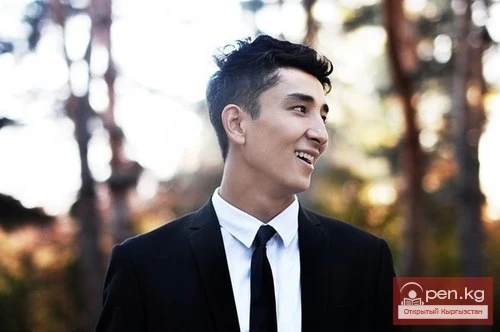
A Bishkek Resident Will Appear on the Cover of the Russian Glossy Magazine "Top Asian People"
Bishkek resident Nursultan Alibekov won the online voting of the "Guy of the Month"...
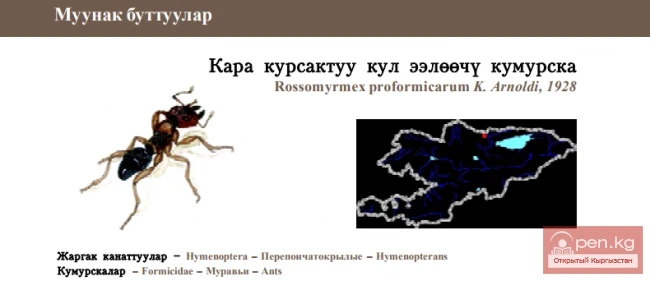
Amazon-Rossomyrmex / Kara kursaktuu slave-holding ant \ Russian Rossomyrmex
Amazon-Rossomyrmex Status: Category II (VUB2ab(iii); C2b; D2). A rare relict representative of the...

"The Fastest Text-to-Video Transformation on the Internet." Elon Musk Praises the New Version of Grok Imagine
The Grok Imagine update now includes a new text to video feature, making the process of converting...
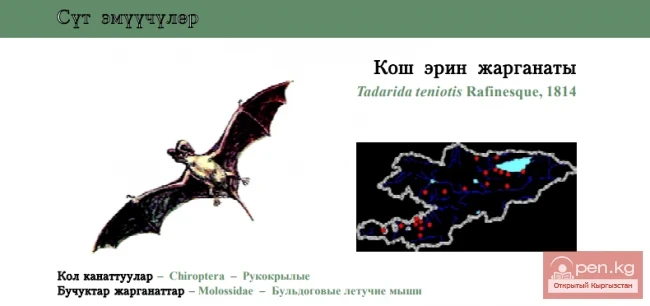
Broad-eared bat / Erin's bat / European Free-tailed bat
Broad-eared bat Status: Category VII, Lower Risk/least concerned, LR/lc....
Karakol. Terskey Ala-Too. Backcountry and Freeride in Kyrgyzstan.
Russian fans of extreme freeride and backcountry made an introductory video about Karakol and...
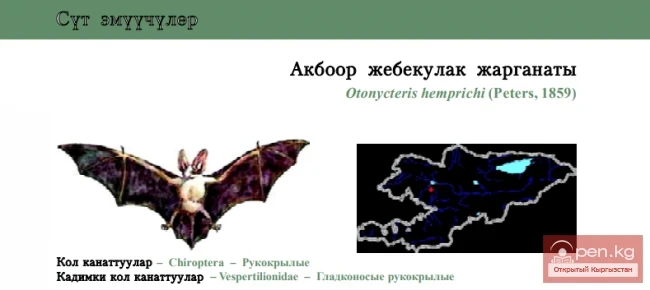
White-bellied Long-eared / Akboor Jebekulak Bat / Desert Long-eared, or Hemprich’s Arrow-eared, Bat
Desert Long-eared Bat Status: Category VII, Lower Risk - Least Concern, LR/lc....
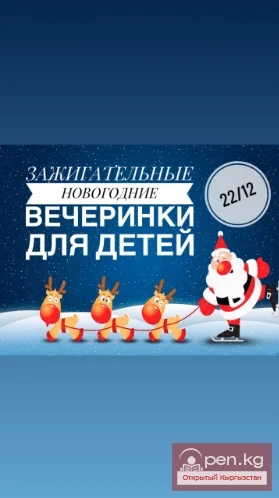
Art Loft VMeste and the animation team El Studio invite you to a magical performance for children.
A magical performance for children featuring long-awaited New Year characters! Art Loft VMeste and...
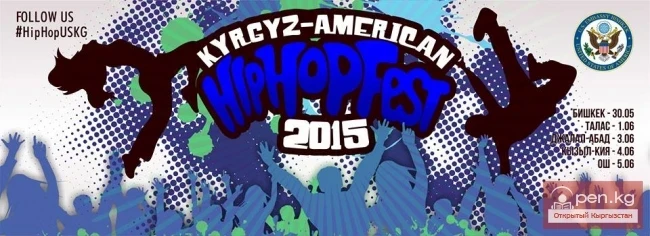
Kyrgyz-American Hip-Hop Fest 2015
From May 28 to June 5, 2015, a youth festival "Kyrgyz-American Hip-Hop Fest 2015" will...

Upcoming Events for Lawyers from the British Company "Capital Business Events"
Dear Ladies and Gentlemen!...
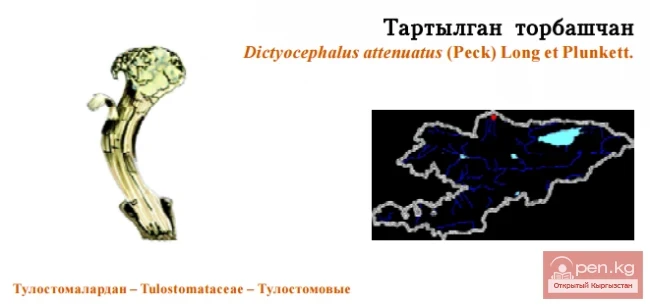
Tapered Net-cap
Tapered Net-cap (Dictyocephalus attenuatus (Peck) Long et Plunkett). Status: VU. A very rare...

iTalk - a platform for presenting successful ideas
When: March 7 at 15:00...
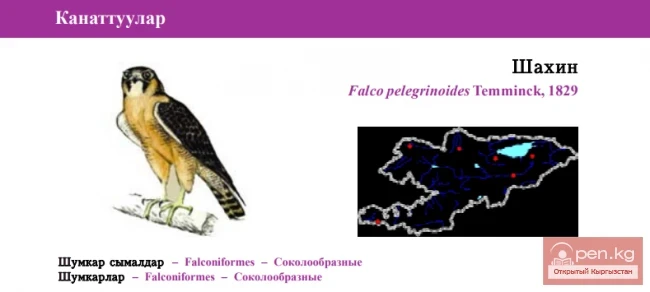
Red-headed Falcon / Shaheen / Barbary Falcon
Barbary Falcon Status: Category III, Critically Endangered, CR: R. Kyrgyz ornithologists believe...
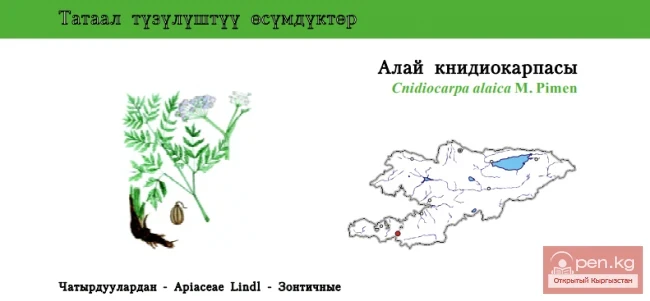
Cnidiocarpa Alai \ Alai Cnidiocarpa \ Cnidiocarpa
Cnidiocarpa alaica Status: VU. A rare representative of a monotypic genus....
Kyrgyz Republic - This is Our Land
The Kyrgyz Republic is a country of Heavenly Mountains, stunning nature, and hospitable,...
The Beautiful Country Known as Kyrgyzstan
Kyrgyzstan is a small country bordering Uzbekistan, Kazakhstan, and Russia. The main attractions...
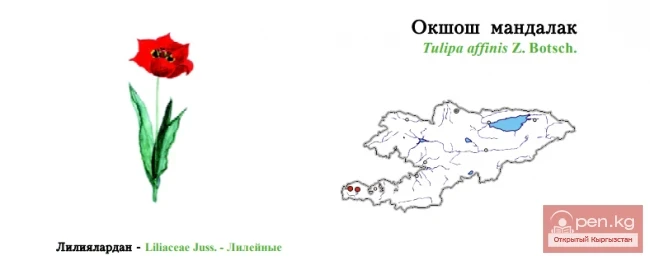
Related Tulip / Okshosh Mandalak / Similar Tulip
Related Tulip Status: VU. Endemic species of the northern Pamir-Alai. The species is at risk of...
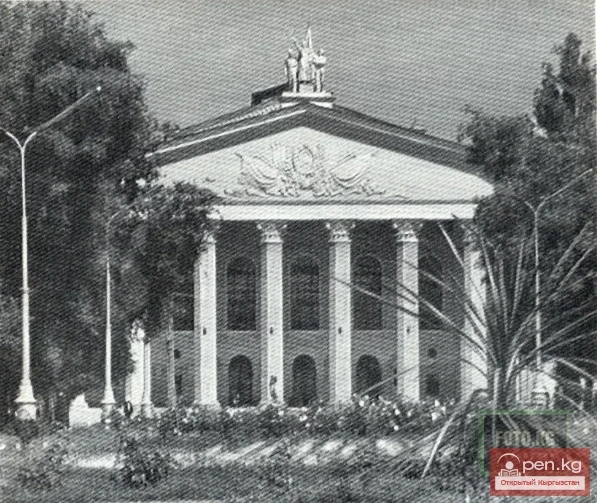
One-Act Ballet by V. Vlasov and V. Fere "Selkinchek"
Ballet "Selkinchek" The production of "Anar" marked the beginning of the...
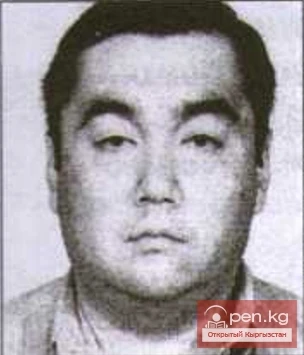
Chikeev Asylbek Asakeevich
Chekeev Asylbek Asakeevich (1962), Doctor of Physical and Mathematical Sciences (1998), Professor...
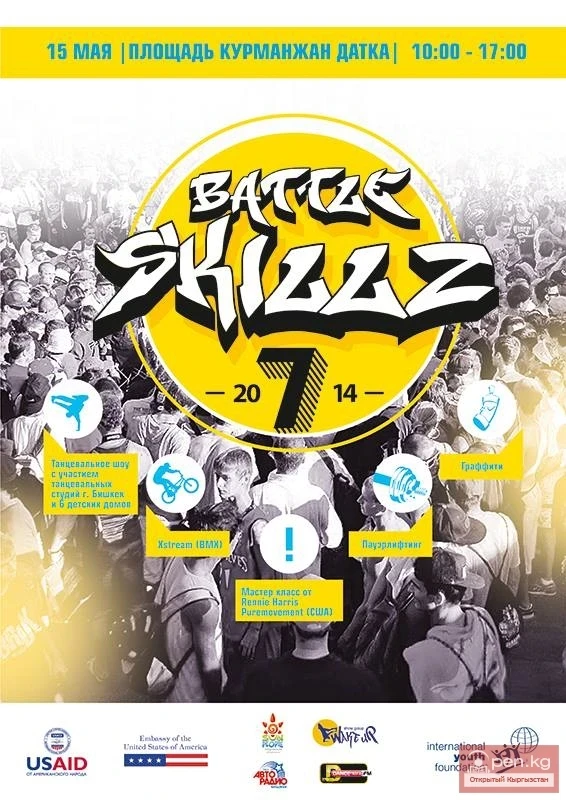
Seventh Annual Dance Festival Battle Skillzzz
The dance studio “Wake Up Dance Studio”, with the support of the Bishkek city administration, the...
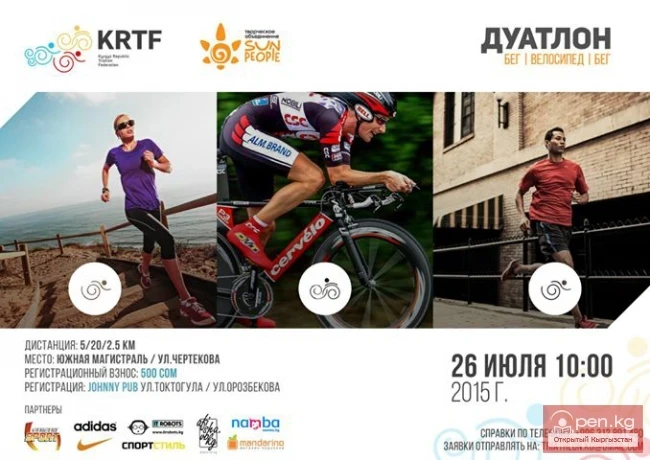
Open Championship of Bishkek in Duathlon
On July 26, 2015, at 10:00, the Open Championship of Bishkek in Duathlon will take place in...
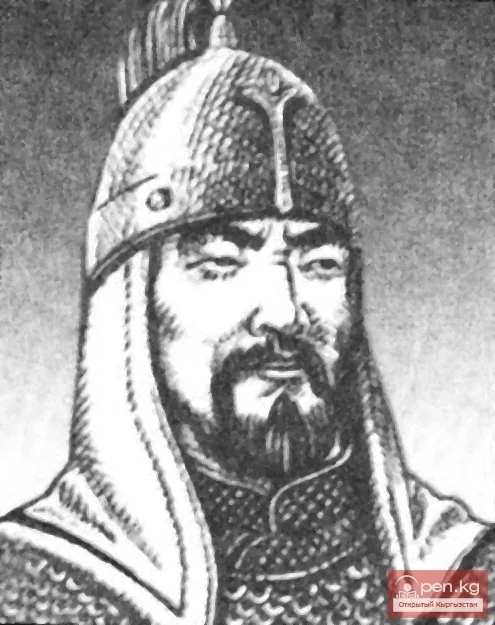
Tagai Bi (Muhammed Kyrgyz)
In the history of the 16th century, Tagay Bi was celebrated under the name of the great figure...
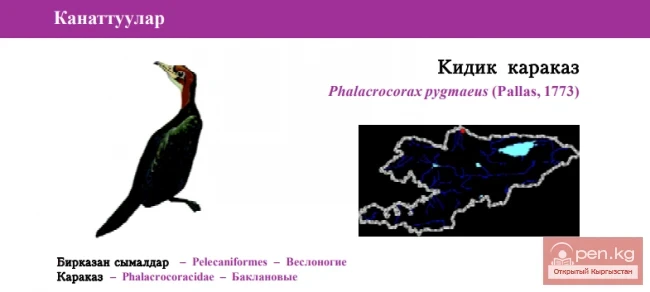
Little Cormorant / Kidik Karakaz / Pygmy Cormorant
Pygmy Cormorant Status: Category VI, Near Threatened. One of 2 representatives of the genus in the...
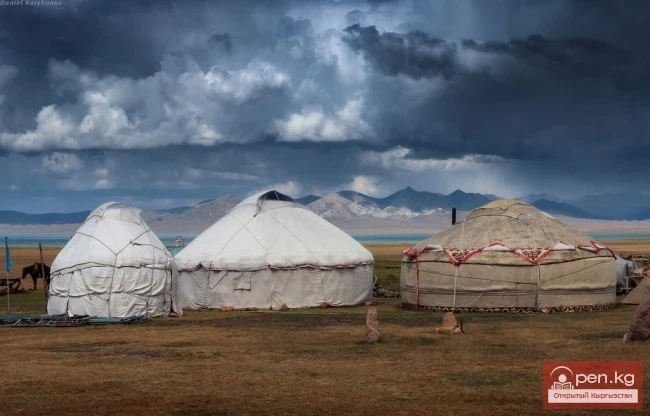
The presentation of the Regulations on the national award "KYRGYZ TOURISM AWARDS" took place.
On April 16, 2014, a press conference was held at the "Kabar" news agency regarding the...

The First Electronic Music Festival in Kyrgyzstan
The creative association "Deep Sound" presents — the first electronic music festival in...
How the Image of the Kyrgyz Man Has Changed
100 years/ Style/ Kyrgyzstan. Limon.KG: How the image of the Kyrgyz man has changed...

In the Kyrgyz capital, the "Fashion Night" party took place.
Last weekend, the first fashion event of 2016 - 'Fashion Night' - took place at the Sky...
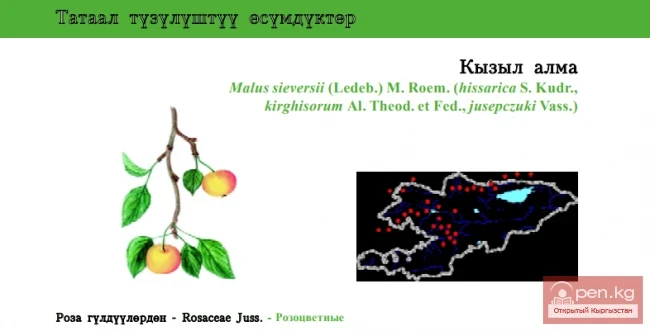
Sievers’s Apple-tree \ Kyzyl Alma \ Sievers’s Apple-tree
Sievers’s Apple-tree Status: LC category. A polymorphic species of the mountain-central Asian...
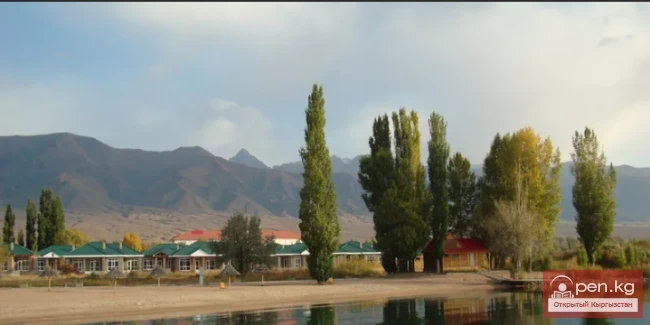
The Village of Toru-Ayghyr. Video
Toru-Ayghyr with a Rich Past The village of Toru-Ayghyr, with a population of 2,616, is located on...

"An Amazing Race" in Kyrgyzstan
The television companies “CBS” (USA) and “First Field International” (Russia), with the support of...
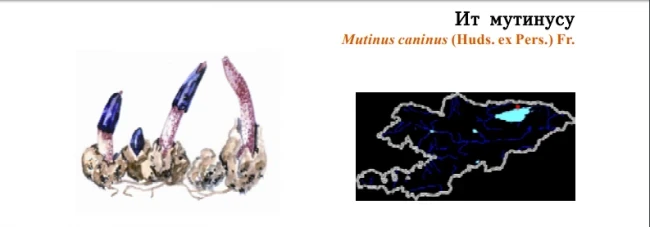
Mutinus caninus / It mutinus / Dog Stinkhorn
Dog Stinkhorn Mutinus caninus (Huds. ex Pers.) Fr. Status: EN. A decorative species, used in folk...
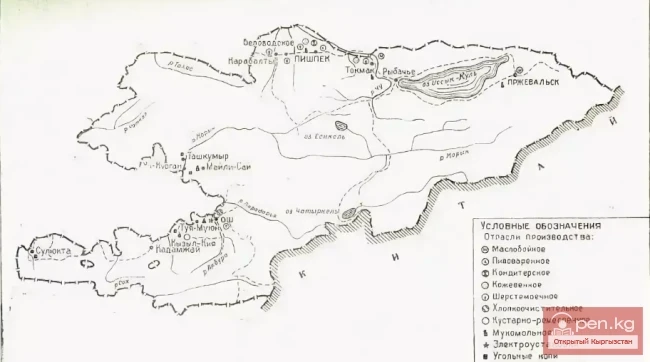
The Industry of Kyrgyzstan within the Russian Empire
The Industry of Kyrgyzstan in the Territory of Turkestan In the early 1890s, intensive exploration...
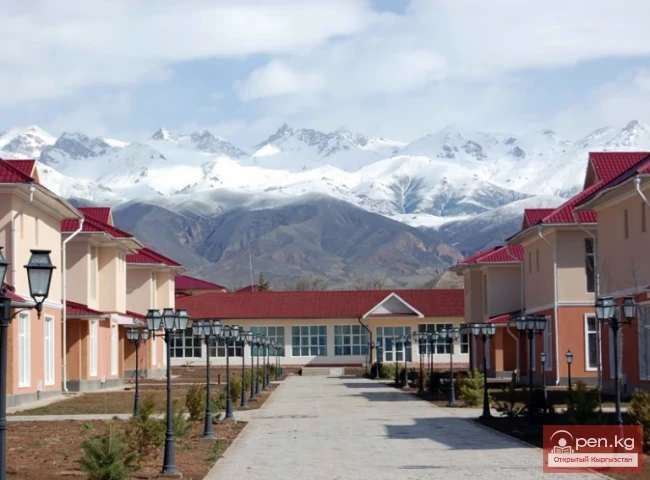
The title translates to: "Pension 'Talisman-Village'"
Hotel “Talisman Village” is a modern, year-round, comfortable hotel. It is built in a location...
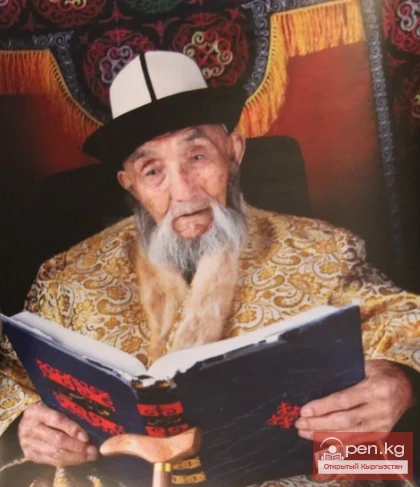
Hero of the Kyrgyz Republic Jusup Mamai
Jusup Mamai, the Great Narrator of the Epic "Manas" He was born on May 4, 1918, in the...
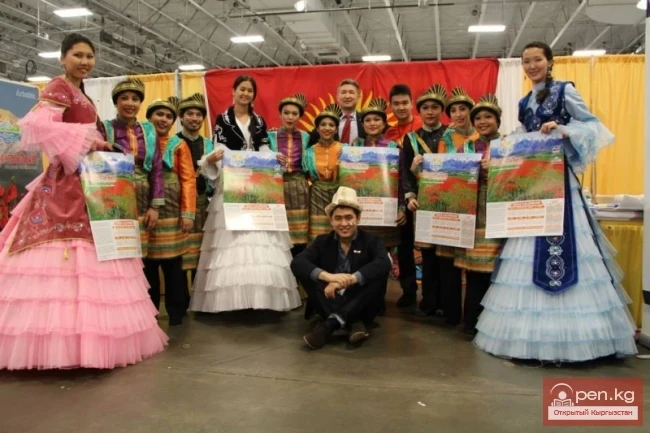
Kyrgyzstan will be represented at the "International Heritage" festival in New Jersey.
On May 31, the "International Heritage" festival will take place in New Jersey (USA)....

Who owns the elite boarding houses and recreation centers on Issyk-Kul?
Summer and vacation season are approaching, which many Kyrgyzstanis spend at Issyk-Kul. KirTAG...
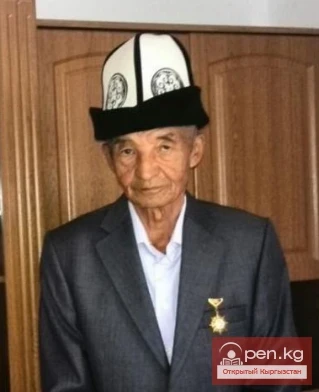
Hero of the Kyrgyz Republic Arikov Kurmanbek
Kurmanbek Arykov, installer of steel and reinforced concrete structures at JSC...
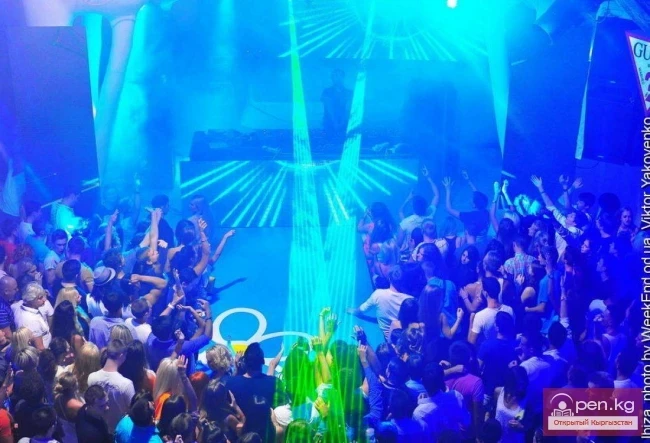
"IBIZA" Night Club
The nightclub «IBIZA» is one of the most popular and fashionable clubs in Bishkek. The club...
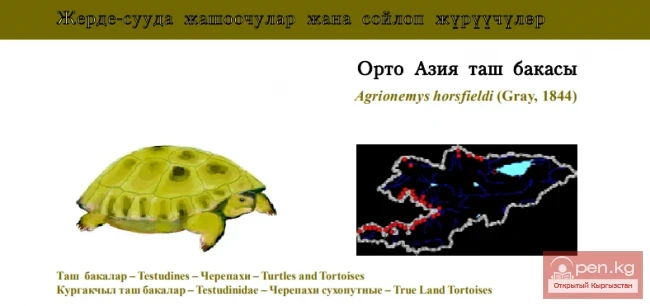
Central Asian Tortoise \ Orto Asia Tortoise / Steppe, or Afghan, Tortoise
Central Asian Tortoise Status: VU Blab (ii, iii, v); Cl. A representative of a monotypic genus,...
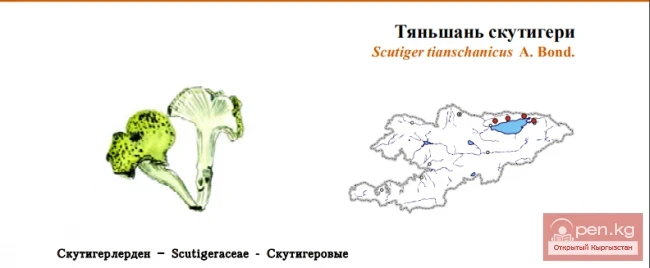
Tian Shan Scutiger
Tien Shan Scutiger Scutiger tianschanicus A. Bond. Status: CR. Very rare, almost endemic species....
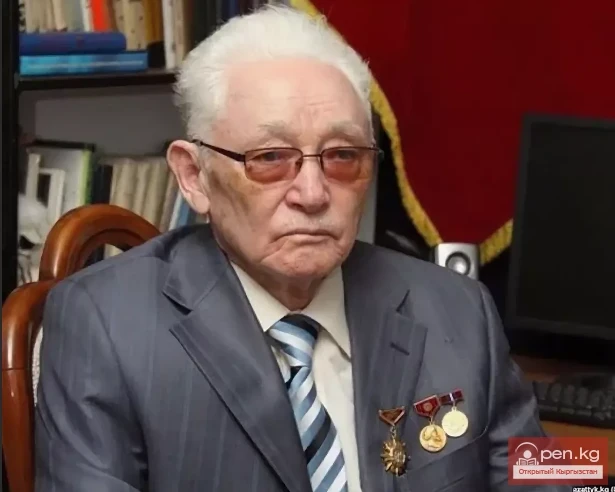
Hero of the Kyrgyz Republic Tologon Kasymbekov
Tologon Kasymbekov — Kyrgyz Soviet writer. He was born in the village of Ak-Jol, Aksy District,...
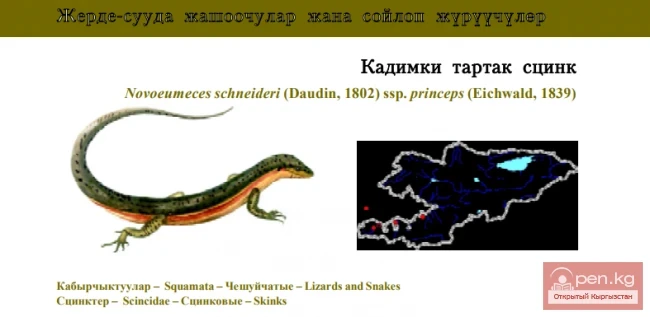
Schneider's Gold Skink / Kadimka Tartak Skink
Schneider’s Gold Skink Status: Category ENB1ab(iii). A sporadically distributed south-Turanian...
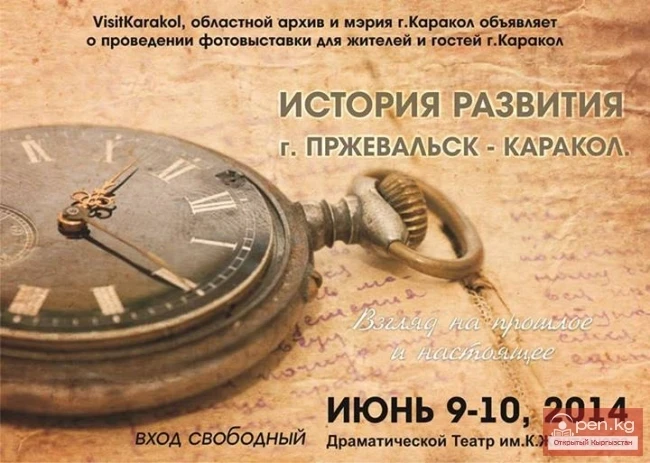
The History of the Development of Przhevalsk - Karakol. A Look at the Past and Present
Dear residents and guests of the city of Karakol, the "VisitKarakol" project, in...
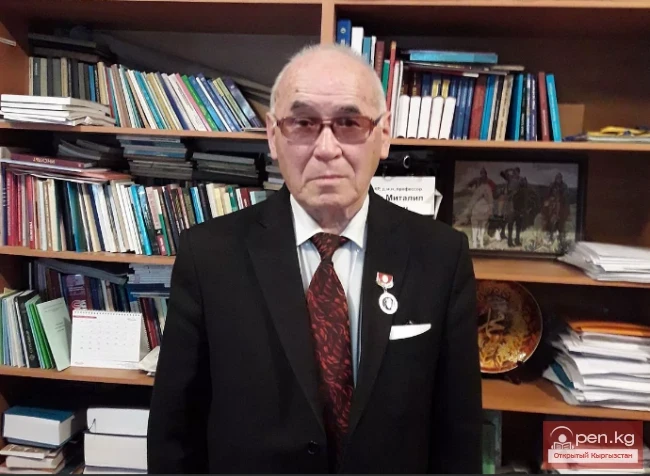
Hero of the Kyrgyz Republic Mamitov Mitalip Mamitovich
Mitalip Mamitovich Mamitov — Soviet and Kyrgyz neurosurgeon Born on December 16, 1939, in the...
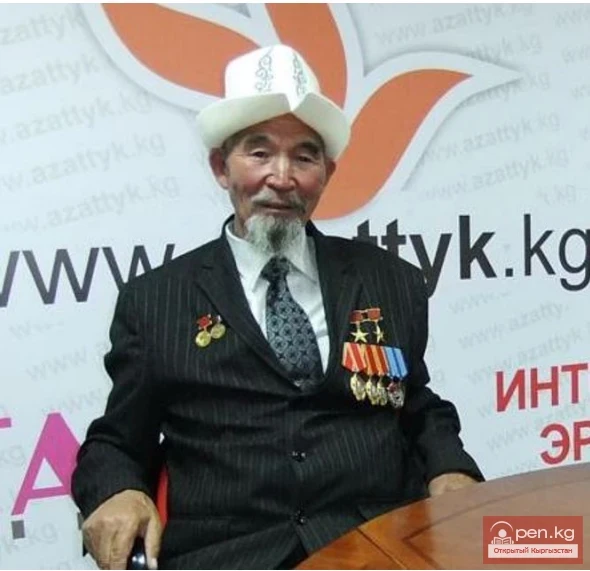
Hero of the Kyrgyz Republic Akmatov Tashtanbek Akmatovich
Tashtanbek Akmatovich Akmatov — Kyrgyz state and political figure. He was born in September 1938...
